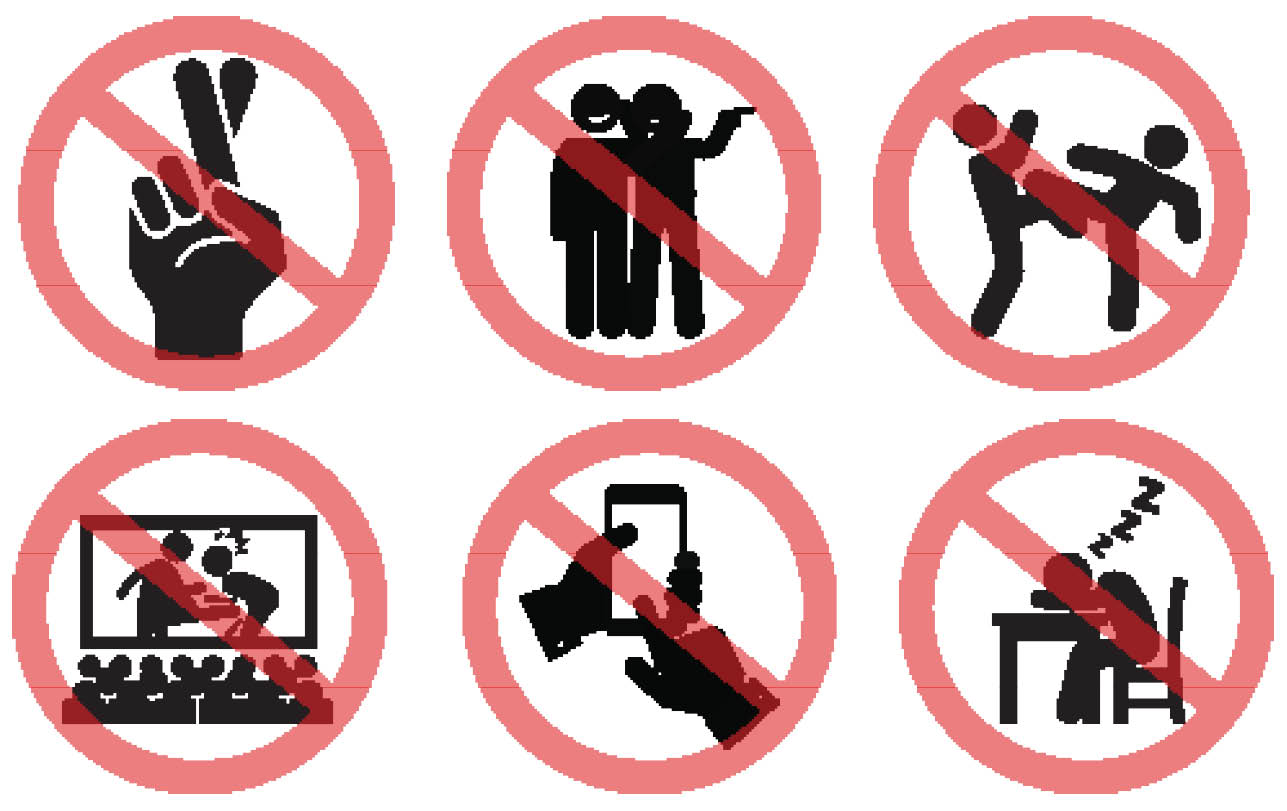Gratitude is due to Allah who, in His infinite mercy, is seeing us through this year’s Ramadan. At sunset today, we would have completed about one-third of the Ramadan fast. As we progress with the Ramadan, we intend to remind ourselves of some necessary restraints that will help to preserve the sanctity of our fast. Some people could end up starving themselves because of the flawed manner in which they observe their fast.
Some of the practices that are counterproductive to the essence and purpose of fasting include telling lies. Abu Hurayrah (RA) reports that the Prophet (SAW) said Allah (SWT) has no need in the abstinence from eating and drinking (i.e. fasting) of a believer who refuses to refrain from false speech and working with it. While the phrase “false speech” includes lying, backbiting, character defamation, bearing false witness, gossiping, rumour mongering, slandering, spreading of fake news, and every kind of speech that is haram; “working with it” means doing evil. This means any fasting believer who engages in these oral vices when he speaks shall have succeeded in starving, not fasting. Let us therefore desist from telling lies and from engaging in all forms of evils which the holy Qur’an has made unlawful. Allah (SWT) compares backbiting to the eating of human flesh. Subhanallah! He (SWT) says in Qur’an 49: 13 “… And spy not on each other, nor speak ill of each other (behind their backs). Would any of you like to eat the flesh of his dead brother? Nay, you would abhor it. But fear Allah for Allah is oft-Returning, Most Merciful”
The Sunnah of the Prophet (SAW) advises us to exercise restraint in our speeches especially when we are fasting; urging us to say “I am fasting” when we are provoked by others. If anyone attacks us with vulgar speech or attempts to engage us in a fight, we are advised to remain calm and then say “I am fasting”. Ramadan is not a period for engaging in vain talks. Self-control is one of the virtues which fasting is intended to inculcate in us. Fasting should make us humble, kind, and compassionate. Ramadan is intended to teach us to be patient and tolerant when we are insulted or provoked. Fasting provides those who are quick at taking offence over trivial issues with spiritual mechanisms for managing their anger. Although it is not easy to break bad habits, Ramadan provides us with an opportunity for doing so. If it is possible for one to abstain from what is permitted (halal), it should not constitute any serious challenge for one to abstain from that which is unlawful (haram).
It is important we restrict ourselves from watching movies especially during the day time in Ramadan because of the danger involved. Spending long hours on social media platforms should also be avoided if we desire to preserve the purity of our Ramadan fast. So many things happen on the social media. Reckless surfing of the internet and frenzied participation on the social media could accidentally lead one into watching obscene video clips and photographs or listening to offensive audio clips that could jeopardize the Ramadan fast. Let us, thus, reduce the amount of time we spend with our tablets, smartphones, video games and multimedia devices. It is more rewarding to deploy the time spent on these devices to reciting the holy Qur’an or glorifying Allah (SWT).
We need to watch our eating habits during Ramadan. Ramadan isn’t a period to gather and eat all categories of food during iftar (breakfast) at sunset. It requires discipline to be modest when we eat. The Prophet (SAW) advises that we divide our belly into three portions; filling one with food, the second with water and the third with air. When we overfeed, it is natural for us to feel too weak to observe the acts of ibadah which we are encouraged to observe in Ramadan including Tarawih and Tahajjud prayers. Let us avoid overfeeding when breaking our fast or taking our dinner to enable us observe Tahajjud prayer which requires waking up in the middle of the night.
While the body may naturally need some hours of rest to cushion the effect of fatigue from the Ramadan fast, such a rest should be reasonable. Oversleeping is not encouraged during Ramadan. Every moment in Ramadan is full of spiritual benefits waiting to be exploited by fasting believers. During Ramadan, we need more time for reciting the Qur’an, more time for studying it, more time for listening to its commentaries on radio and television channels, and more time for seeking Allah’s mercy and forgiveness from our sins. Every hour, every minute and every second should be seen to count in our attempt to achieve spiritual upliftment in Ramadan. This does not imply that we should completely deny ourselves sleep throughout the night because lack of adequate sleep is injurious to health. Let us use this Ramadan to build a strong foundation of taqwa (fear of Allah) in our hearts; leaving no space of the sneaking whisperer to build his deceitful workshop. We can achieve this if we make the holy Qur’an our constant companion; if we make the glorification (tasbih) and remembrance (dhikr) of Allah (SWT) the constant activity of our tongue; and if we make the acknowledgement and appreciation of Allah’s mercy and favour the pre-occupation of our reasoning.
In order to preserve the sacredness of our Ramadan fast, let us strive to shun everything that seeks to vitiate it. Let us remember that fasting is not all about abstaining from eating, drinking and conjugal relationship during the day time. It extends to avoiding every act that constitutes a sin. Let us remain righteous; preventing our senses and body from engaging in acts of disobedience. Our eyes, tongue, hands and legs must all be chained from treading the devil’s path. It is when we succeed in keeping our fast in its purest form that we would become one of those whose prayer is accepted. Imam Tirmidhi reports that the Prophet (SAW) said the supplications of three persons are (accepted and) never turned down. They are “a fasting believer until he or she breaks the fast; a just leader; and a person who was unjustly wronged”. May Allah (SWT) guide us to refrain from all that is unlawful in order for us to achieve a virtuous Ramadan fast, amin. Ramadan Kareem!

 Join Daily Trust WhatsApp Community For Quick Access To News and Happenings Around You.
Join Daily Trust WhatsApp Community For Quick Access To News and Happenings Around You.


